Inspired by the Roman goddess of the hearth and home, Italian furniture company Turri’s new ‘Vesta’ pieces – an armchair, two- and three-seater sofas, and a matching coffee table – burn with domestic bliss and luxurious comfort.
Designer Francesca Lanzavecchia conceived the pieces to mark Turri’s centenary this year. Founded in Brianza in 1925, and maintaining a constant commitment to excellence throughout its 100 years of stylistic evolution, Turri commissioned the designer to adopt a holistic approach while creating the landmark collection. The results are distinguished by generous volumes and immaculately tailored details, with enveloping cushioning engendering maximum ease. To add meaning and emotion, Lanzavecchia – a self-styled ‘industrial poet’ – considered the less tangible qualities of wellness and poetry, and also referenced architecture and fashion.
We spoke with the designer to find out more.
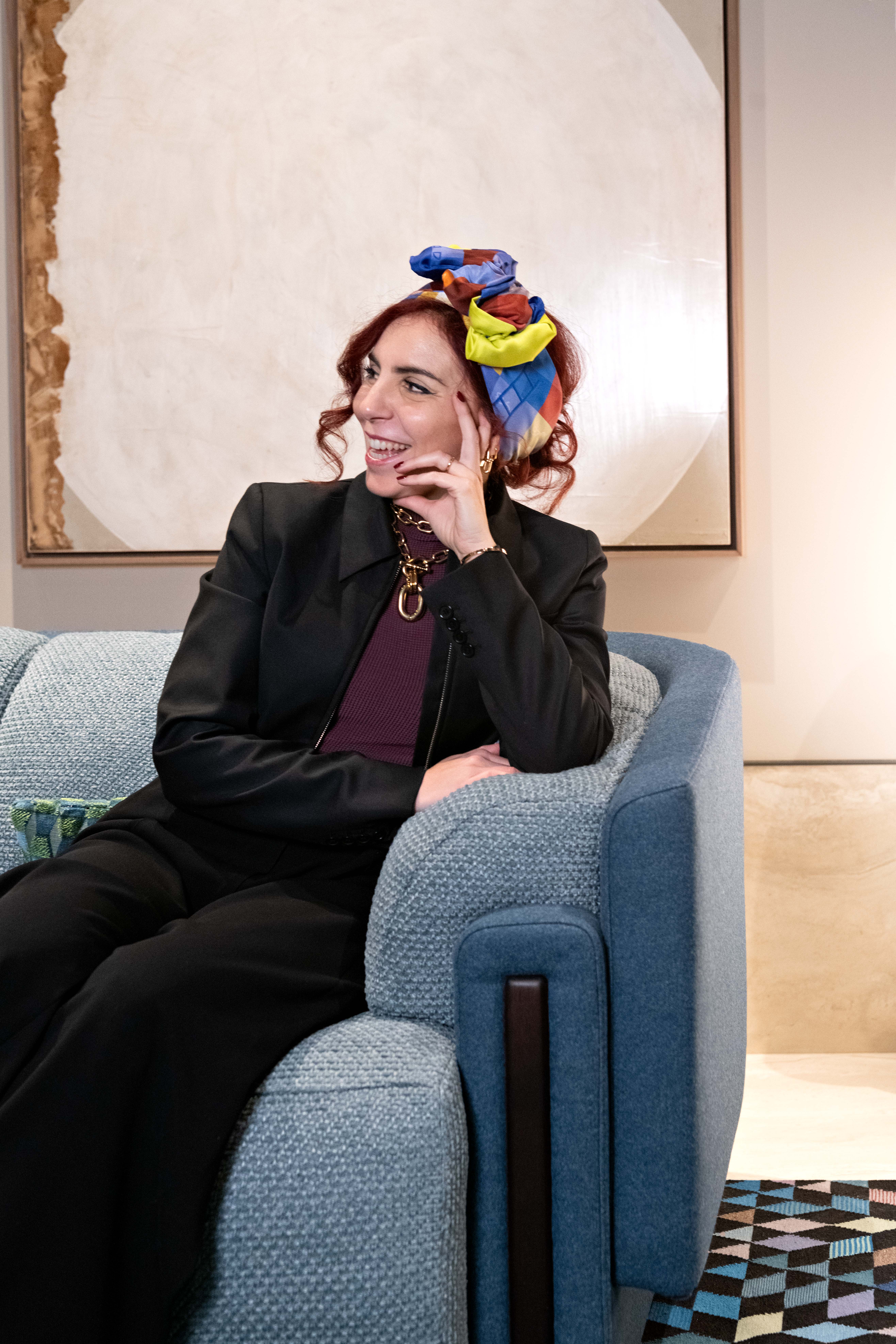
Designer Francesca Lanzavecchia
(Image credit: Turri)
Vesta, keeper of the sacred flame, felt like a powerful yet intimate figure to draw from. She represents warmth, protection, and the quiet rituals of daily life, ideas that translate beautifully into furniture. The ‘Vesta’ sofa, for example, has a strong, almost architectural shell that evokes the solidity of a home, but inside it is incredibly soft and generous. That contrast is intentional: it reflects the duality of sanctuary and softness, each proportion and curve becomes a gesture of care.
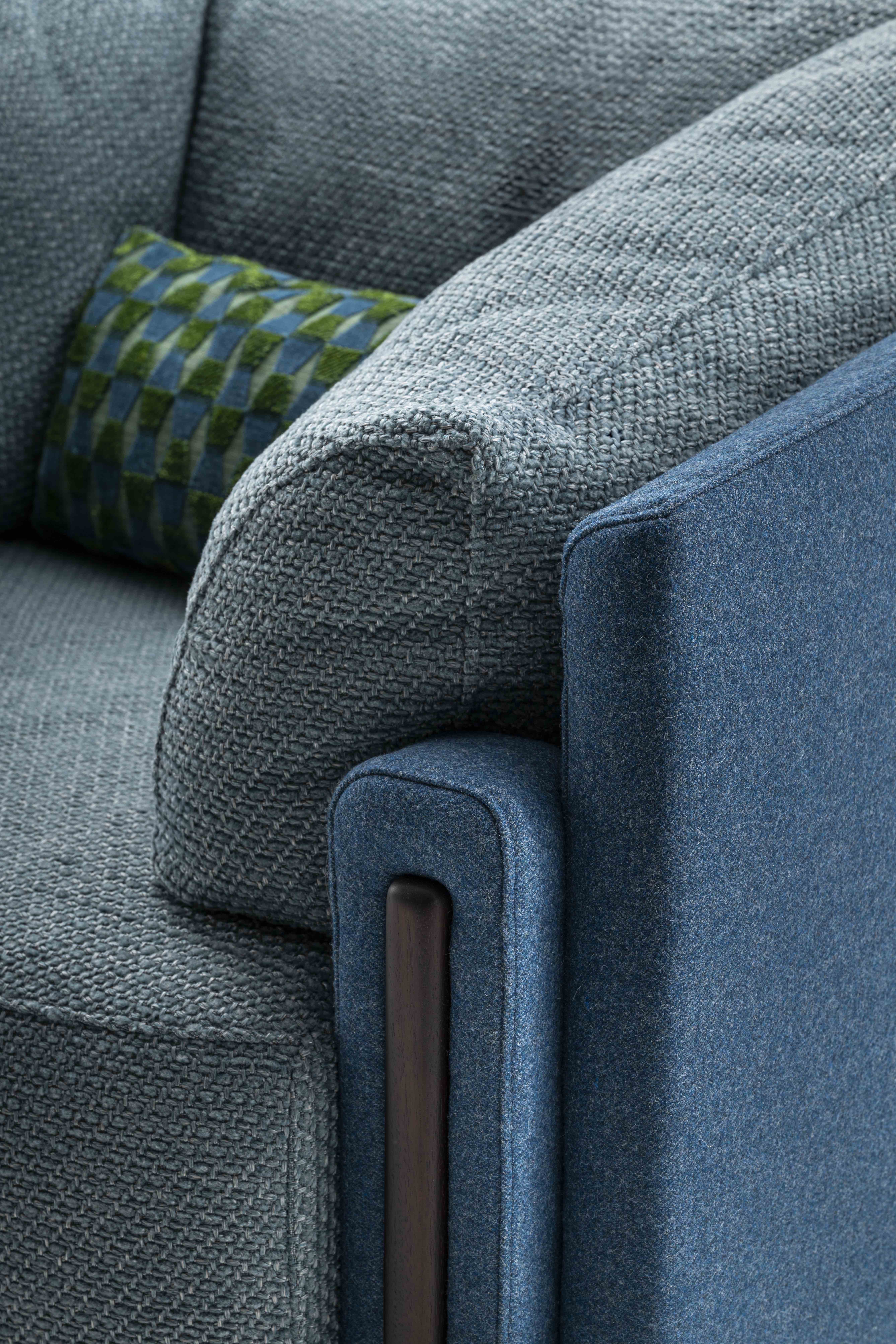
(Image credit: Turri)
We explored wellness both physically and emotionally. How objects support the body, but also how they engage the senses. Comfort came from generous, embracing volumes and super-soft upholstery, but also from tactile harmony. Natural materials like oak, soft wool textiles, and fused glass – which looks like a still pond – help create a sense of grounded calm. These materials don’t just look refined; they feel honest and alive, quietly reinforcing wellbeing through texture, warmth, and sensory richness.
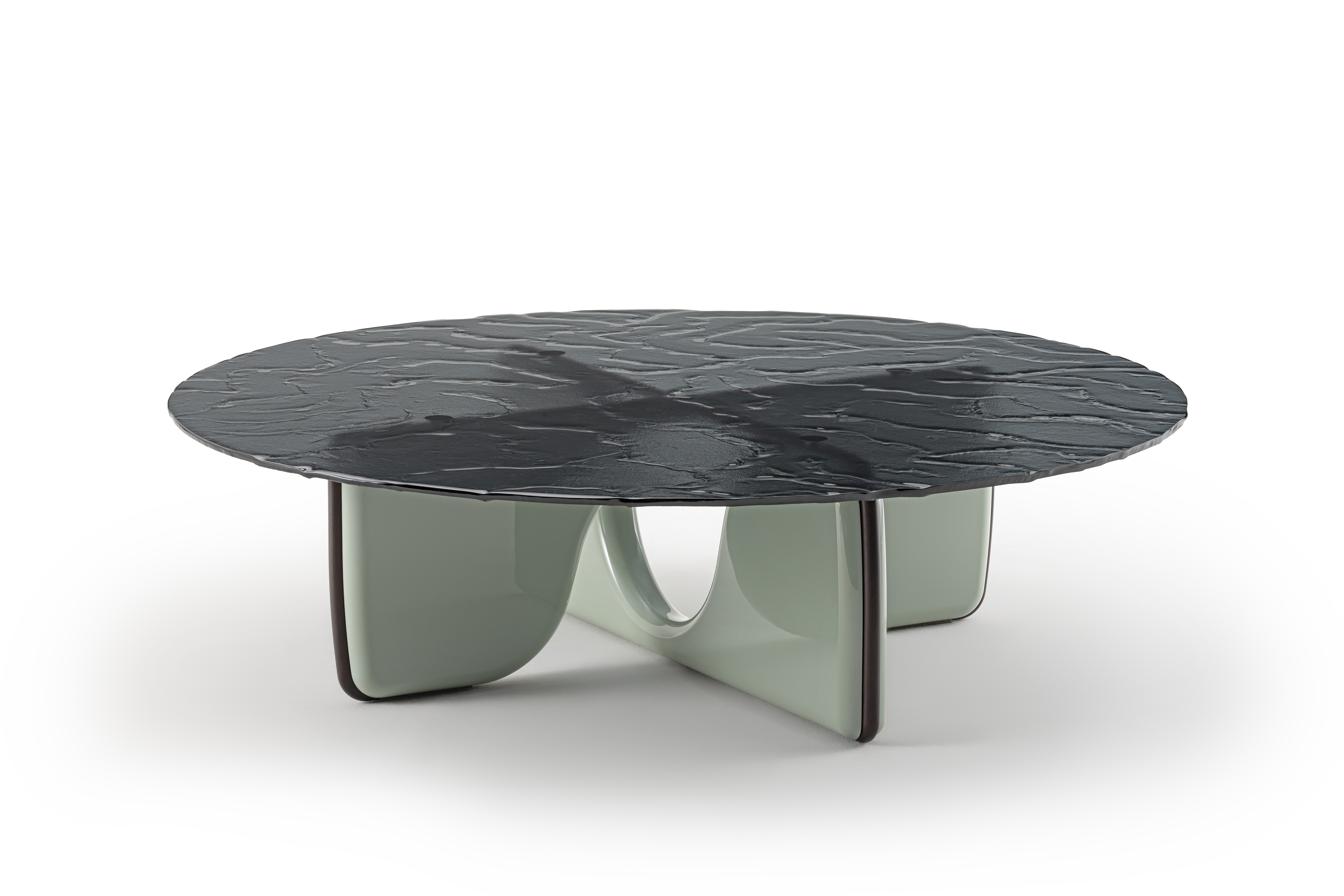
(Image credit: Turri)
Turri has a long tradition in Italian craftsmanship – it is a brand known for its classical roots. But when they reached out to me, it was clear they were in a moment of transformation. They wanted to explore a new language: refined, relevant, yet still rooted in savoir-faire. We met in that space between tradition and evolution. They trusted me to bring a fresh perspective, and I embraced their culture of making with great respect. It became a truly collaborative dialogue.
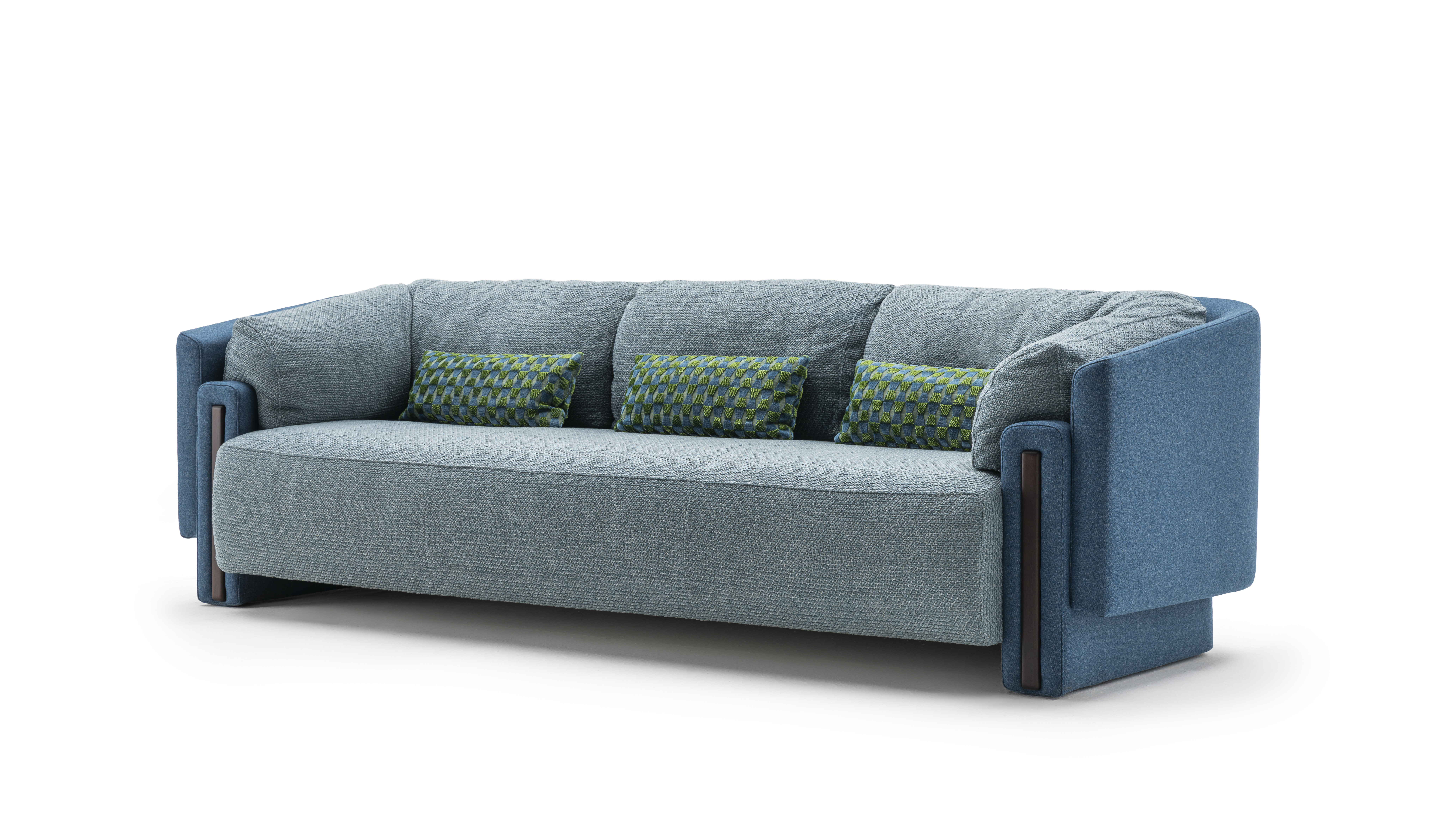
(Image credit: Turri)
W*: While designing the collection, what were your influences and reference points?
FL: Fashion was central, especially the ethos of quiet luxury, where refinement is expressed through materials, construction, and restraint. I thought about how tailoring uses seams and cuts to convey personality, and how textiles can become architectural. There’s also a timelessness I admire in certain interiors that are not trend-driven, but deeply atmospheric. Light, texture, proportion: these were my guiding references. I wanted ‘Vesta’ to feel composed, but never cold; something you can return to again and again, with the same sense of ease and belonging.
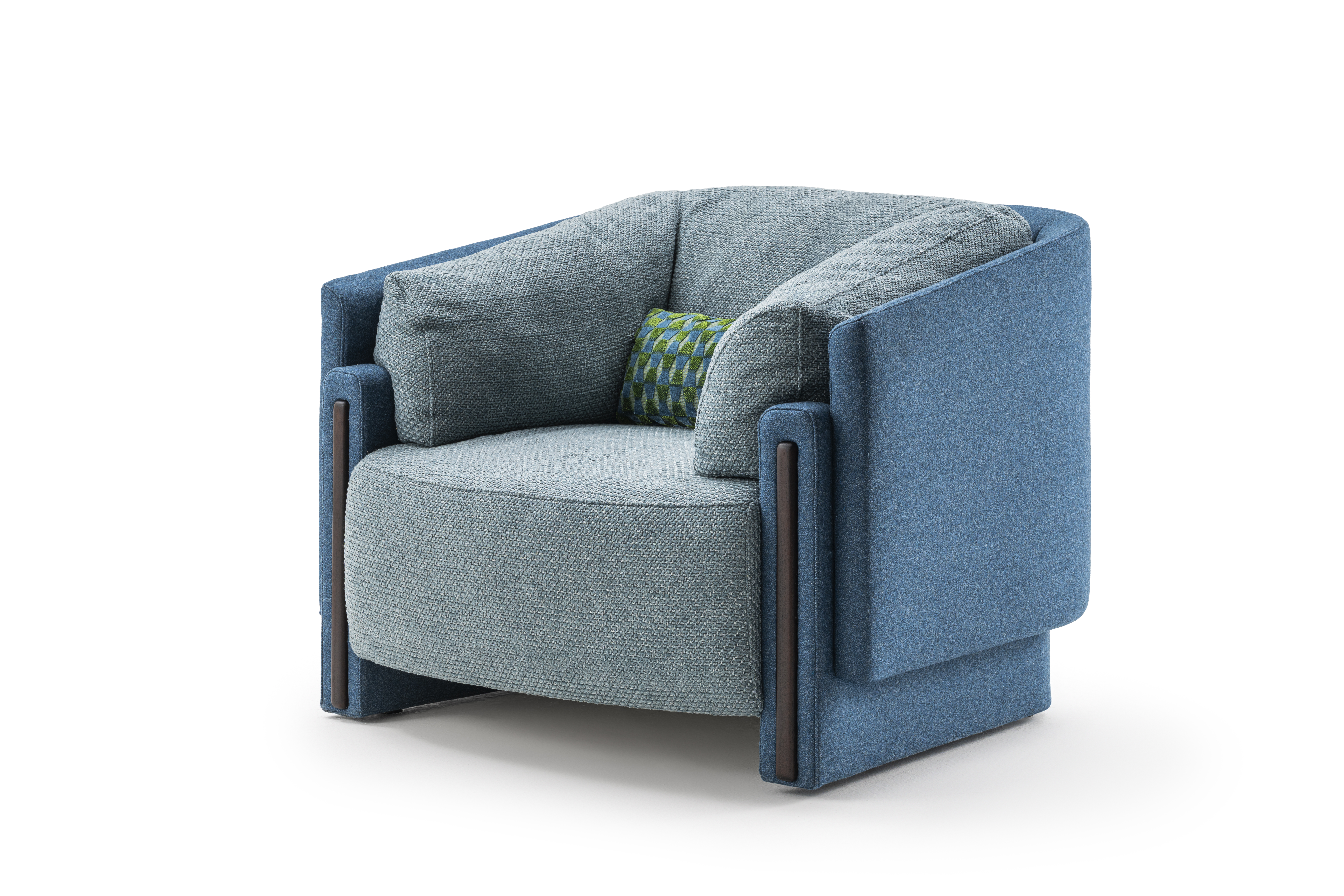
(Image credit: Turri)
W*: In what particular rooms and environments do you imagine the collection being most at home?
FL: ‘Vesta’ feels at home in many kinds of refined settings: from a penthouse in New York to a modernist villa in Dubai, a historic palazzo on Lake Como, or a Parisian hôtel particulier. I see it in curated, welcoming living rooms and lounges; spaces where people gather, but also retreat. The interplay of materials, soft textiles, walnut wood and glass creates a complete, enveloping atmosphere. The forms are sculptural but calm, bringing warmth and quiet presence to both contemporary and classical interiors.
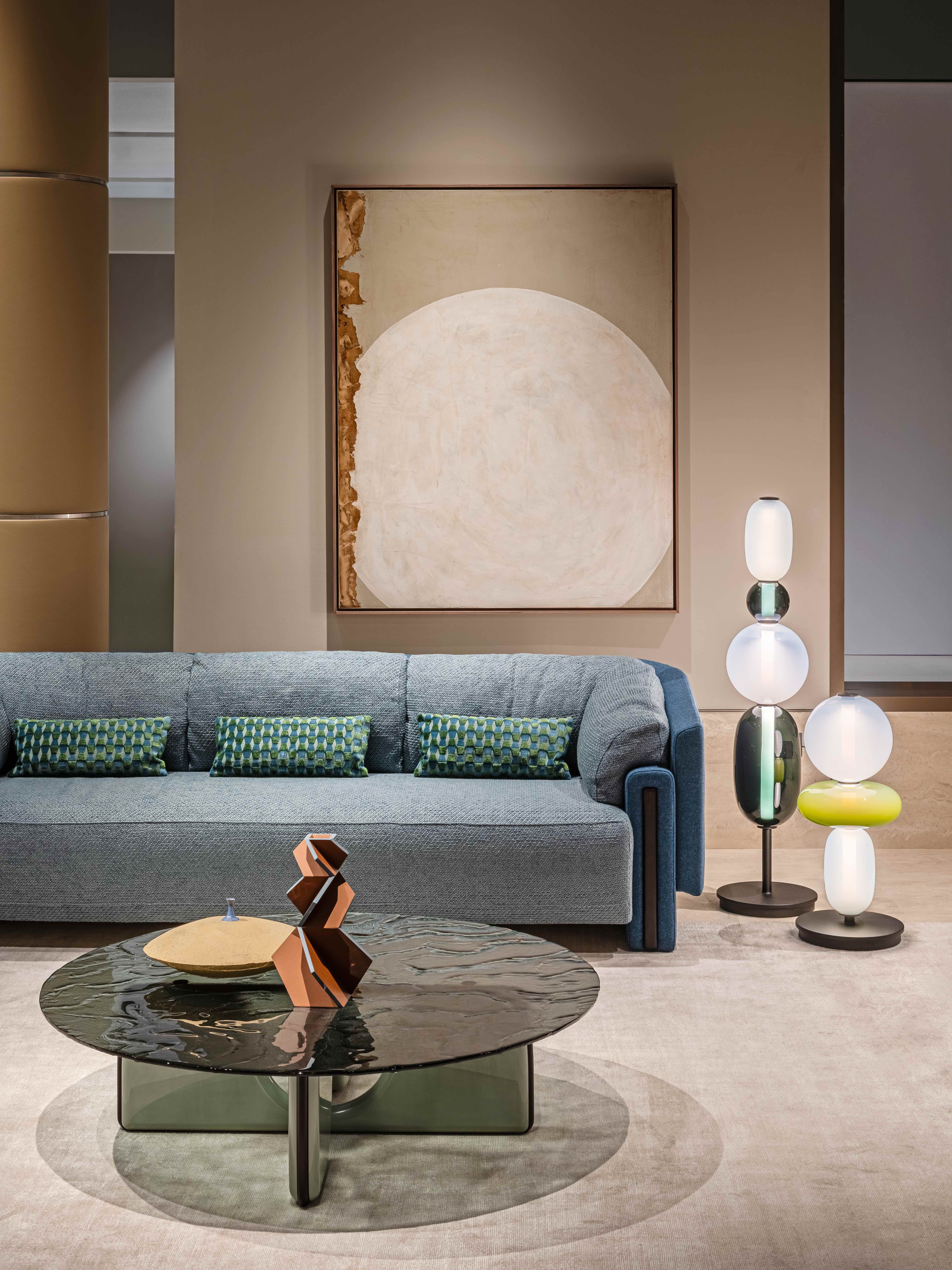
(Image credit: Turri)
W*: You often talk about ‘poetry’ in design. You create ‘industrial poetry’ and apply ‘poetic attention to form and material’. Why do you use this word and how is it represented in your work?
FL: Because poetry brings emotional depth to the everyday, it allows space for nuance, resonance, and a certain quiet magic. I say ‘industrial poetry’ because I design within systems of production, but with a highly intuitive and sensitive approach. Even functional pieces, like the ‘Vesta’ coffee table, carry that ethos: its base layer features glossy lacquer and walnut in a thoughtful, almost meditative composition. The smoky, fused-glass top feels fluid, like a pond or distant planet. It’s a piece that anchors the room and adds a moment of stillness. That, to me, is where the poetry lives.










